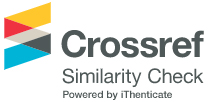There are some ethical canons for publication that exist so that a high-quality scientific publication and civic trust in scientific verdicts can be guaranteed and that people receive credit for their ideas. They are used in publication of scientific papers to evade the pitfalls of plagiarism and other unintentional ethics desecrations such as duplicate submissions, incongruous repetition, and publication delinquency. The standards of expected ethical behavior for all parties bear the participation of the author, the journal editor and the reviewer.
This process helps authors manifest their efforts in a genuine scientific paper, free from any errors and help in make it suitable for publication. Reviewers are expected to appraise a document for critical analysis, relative analysis and most significantly for reliability and novelty of research work. Hence, this ethical process bears importance on their part as well. Editors, on the other hand, are expected to deal with all the publication decisions with a fair play and help deserving authors place their works in the relevant journals.
Here we will be discussing publication ethics for authors, reviewers, and editors.
- Authors
- The most important point of publication ethics is that the work submitted by author should be truly original. It should be free from any sort of plagiarism, hence making it compatible for publication.
- Also it is to be kept in mind that the work submitted should be unpublished and any conflict of interested should be cleared before putting up it for submission.
- The sources used in the development of the manuscript should be recognized and acknowledged
- Concurrent and redundant submission of work is considered unethical and thus should be avoided
- All errors (if any) revealed in the manuscript after submission must be quickly forwarded to the Editor
- The relevant authorship of the paper must be secured by the author
- Reviewers
- It is to be remembered that all the info relating to the manuscript of the author must be kept confidential by the reviewer
- Also, the manuscripts must be reviewed in a justified manner based on the knowledgeable content of the article irrespective of sex, race, ethnicity, religion, or political values of author(s)
- Just like the author, the sources of data must also be acknowledged by the reviewer
- Any perceived conflict of interest throughout the review process must be cleared and communicated to the Editor
- The reviewer must be a bearer of appropriate standards of objectivity while reviewing the manuscript
- Editor
- The most significant task of the editor is to ensure that all the manuscripts are evaluated in fairness based on the intellectual content of the paper regardless of gender, race, ethnicity, religion, citizenry nor political values of authors by the editor
- Every information regarding the manuscript, including the origin and work process must be kept confidential by the editor
- Any observed conflict of interest pertaining to manuscripts must be disclosed
- Proper involvement and cooperation in investigation regarding the manuscript is expected from the editor
These sets of publication ethics are established so as to govern a genuine and proper publication of scientific papers without any errors or misguidance whatsoever. Each member of the publication body (i.e. authors, reviewers, editors etc.) are expected to abide by these ethics so as to facilitate an effective publication experience.
.jpg)


